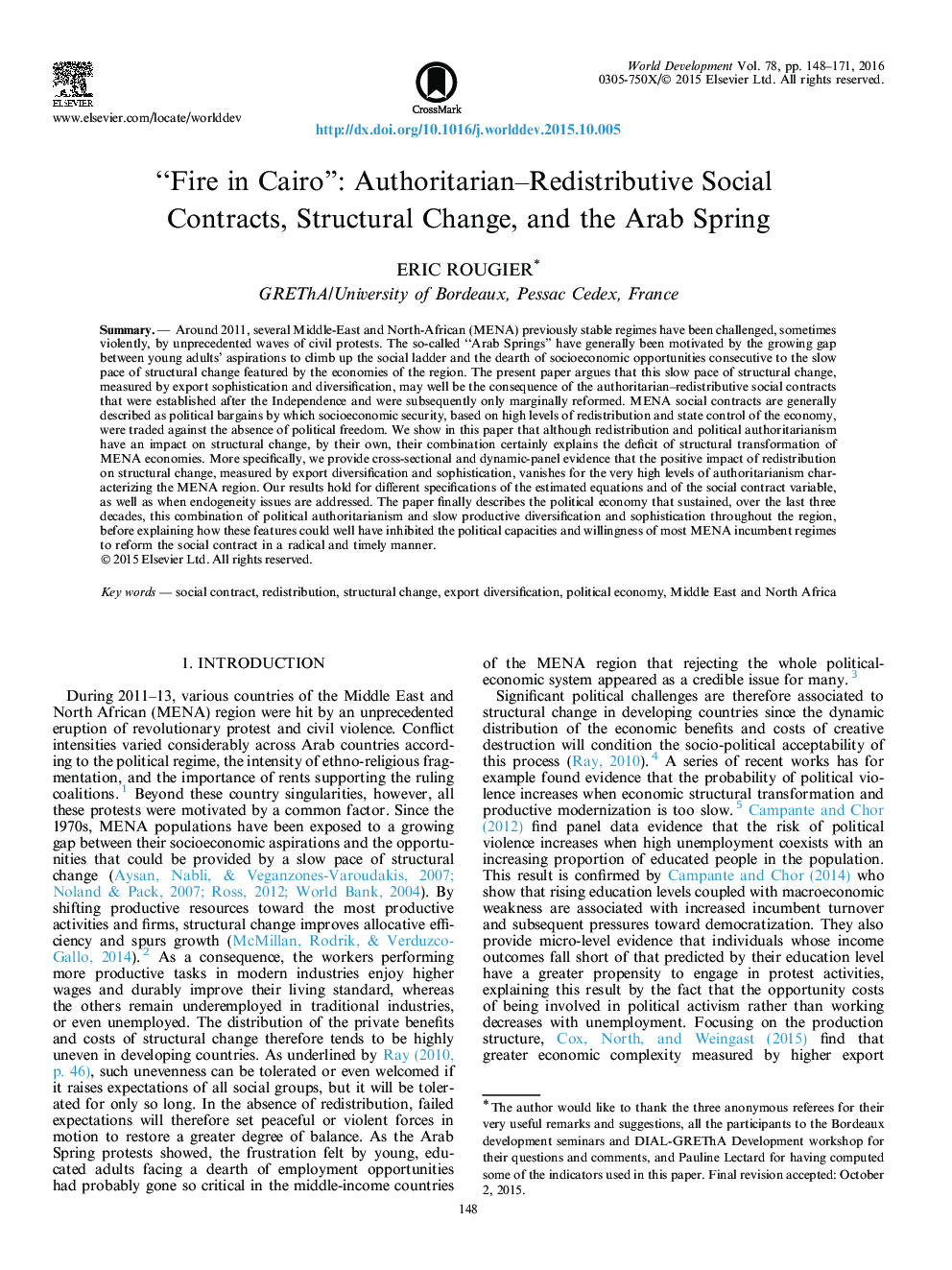| کد مقاله | کد نشریه | سال انتشار | مقاله انگلیسی | نسخه تمام متن |
|---|---|---|---|---|
| 7393061 | 1481140 | 2016 | 24 صفحه PDF | دانلود رایگان |
عنوان انگلیسی مقاله ISI
“Fire in Cairo”: Authoritarian-Redistributive Social Contracts, Structural Change, and the Arab Spring
ترجمه فارسی عنوان
آتش سوزی در قاهره؟: قراردادهای اجتماعی مجدد مجدد، تغییر ساختاری و بهار عربی
دانلود مقاله + سفارش ترجمه
دانلود مقاله ISI انگلیسی
رایگان برای ایرانیان
کلمات کلیدی
قرارداد اجتماعی، توزیع مجدد، تغییر ساختار تنوع صادرات، اقتصاد سیاسی، خاورمیانه و شمال آفریقا،
موضوعات مرتبط
علوم انسانی و اجتماعی
اقتصاد، اقتصادسنجی و امور مالی
اقتصاد و اقتصادسنجی
چکیده انگلیسی
Around 2011, several Middle-East and North-African (MENA) previously stable regimes have been challenged, sometimes violently, by unprecedented waves of civil protests. The so-called “Arab Springs” have generally been motivated by the growing gap between young adults' aspirations to climb up the social ladder and the dearth of socioeconomic opportunities consecutive to the slow pace of structural change featured by the economies of the region. The present paper argues that this slow pace of structural change, measured by export sophistication and diversification, may well be the consequence of the authoritarian-redistributive social contracts that were established after the Independence and were subsequently only marginally reformed. MENA social contracts are generally described as political bargains by which socioeconomic security, based on high levels of redistribution and state control of the economy, were traded against the absence of political freedom. We show in this paper that although redistribution and political authoritarianism have an impact on structural change, by their own, their combination certainly explains the deficit of structural transformation of MENA economies. More specifically, we provide cross-sectional and dynamic-panel evidence that the positive impact of redistribution on structural change, measured by export diversification and sophistication, vanishes for the very high levels of authoritarianism characterizing the MENA region. Our results hold for different specifications of the estimated equations and of the social contract variable, as well as when endogeneity issues are addressed. The paper finally describes the political economy that sustained, over the last three decades, this combination of political authoritarianism and slow productive diversification and sophistication throughout the region, before explaining how these features could well have inhibited the political capacities and willingness of most MENA incumbent regimes to reform the social contract in a radical and timely manner.
ناشر
Database: Elsevier - ScienceDirect (ساینس دایرکت)
Journal: World Development - Volume 78, February 2016, Pages 148-171
Journal: World Development - Volume 78, February 2016, Pages 148-171
نویسندگان
Eric Rougier,
